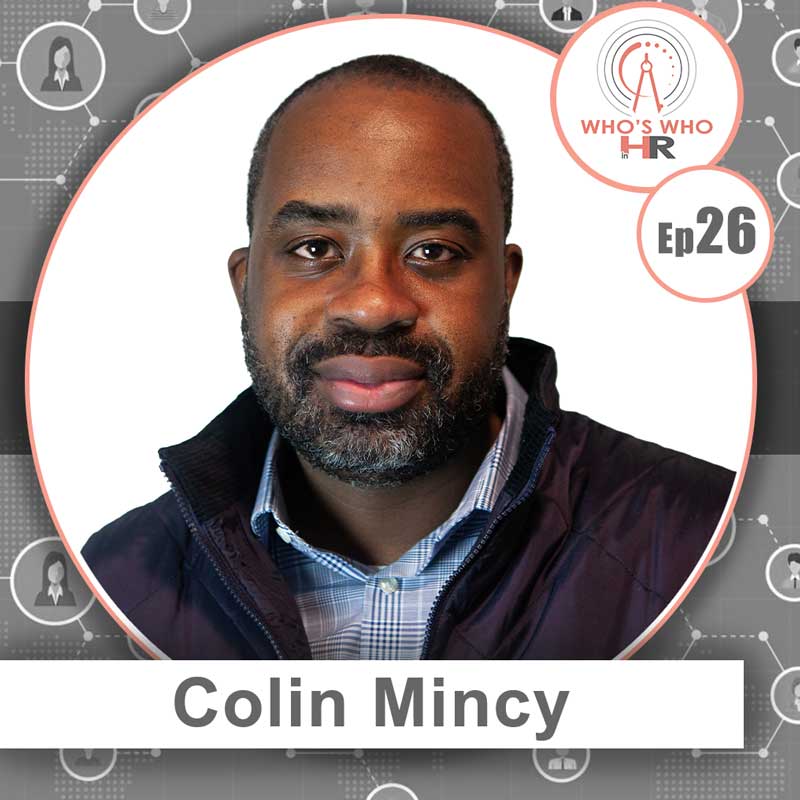Colin Mincy is Human Rights Watch’s first Chief People Officer.
The organization elevated the role to demonstrate the organization’s commitment to implement diversity, equity, and inclusion strategies and to ensure a resilient and thriving staff in ways that reflect the organization’s global role, identity, and mandate.
Colin sits on the Executive Management Team and directs the organization’s global human resources function. He oversees recruitment and hiring, international compensation and benefits, performance management, learning and development, and employee and labor relations.
Prior to joining Human Rights Watch, Colin was the Director of Culture and Change Management for Open Society – US, and managed human resources operations for Open Society Foundation’s US offices. Colin also worked at the International Rescue Committee leading the regional human resources function for its US and European headquarters. Previously, Colin worked in the finance and technology sector as HR Business Partner Consultant for CFO Americas at Credit Suisse, Head of Human Resources at Tracx, and led SimCorp North America function in New York and Toronto.
Colin serves on the Board of Directors for Workforce Professionals Training Institute (WPTI), a non-profit training and technical assistance intermediary for New York City’s workforce designed to unite people, programs, and organizations committed to generating pathways out of poverty through employment community. He also sits on the Board of Directors for Youth Represent a non-profit organization that works to ensure that young people affected by the criminal justice system are afforded every opportunity to reclaim lives of dignity, self-fulfillment, and engagement in their communities. Since 2007, Colin has given of his time and resources as an advisor and workshop facilitator for INROADS New York/New Jersey, a program that he is alumni of and attributes his success to.
More from Colin…
Colin says that many people in the HR industry might hate their job. He says it’s because oftentimes, people who work in Human Resources don’t have a full understanding of what their role is supposed to be.
But he states if people know how to carry out the functions of being the very best HR professional, the job becomes a lot easier, and a lot better:
“HR leaders, HR practitioners always complain that they don’t have a seat at the table. HR is an afterthought. It’s not a function or a space in the business that leadership takes seriously. And one of the reasons is because there are a lot of HR leaders who don’t understand the business that they work for. Or they don’t take the time to understand what people do or what makes people tick, or what experiences people have that sort of color, who they are and how they show up in the workspace.
And what ends up happening is these kinds of teams start rolling out and implementing things that nobody wants. And we’re at a place in the history of work where we’re beyond being paperwork pushing payroll professionals. And we’re supposed to be strategic advisors. We’re supposed to be looking at ways of creating diverse pipelines and making sure there are developmental opportunities to mobilize people so that when they leave the organization, they can look back and say, hey, I’m much better at X now that I’m leaving from when I started. And in order to do all those things, you need trust, and you need credibility. And you can’t have trust and credibility, if you don’t understand the industry, you don’t understand the work. And you’re not providing and creating solutions that respond to people and are helpful to people.
And then the second thing is, and this is a very difficult thing to do. But it is not the role of HR to be the mouthpiece for management. It is, the role of HR is to be a fair, equitable and judicious arbiter of what’s right, what’s right for people, what’s right for the company, what’s right for values. And sometimes that means telling leadership they’re wrong and advocating for the interests of the worker, irrespective of how they feel about you doing it, or how they feel about you. That’s your job.
And sometimes that means telling an employee, you’re wrong and helping the employee understand that the frustrations they have with management, sometimes are connected to the fact that they don’t understand some of the broader frustrations or issues, or things that management is trying to solve for. So striking the balance between being an advocate for the people, and an influencer for leadership, is a very difficult thing to do.
But that’s sometimes why HR isn’t successful because they think that the success of their work is tied to their individual success, and nodding and saying yes to everything, because someone above them said it was a good idea. And sometimes it’s your job to say no, that’s actually a really crappy idea, we shouldn’t do that. And this is why, and this is what will happen. And I think in doing so you create for yourself a space, where if you say no to the employee, because you’ve been fair, and you’ve established yourself, as a person who will stick their neck out, they’ll accept the now and they’ll move on.
And because you’ve been able to stand up for the right things to management, and show that those did in fact, produce healthy and good impact, sometimes before they make that crappy decision again, they’ll come to you and they’ll say, hey, Colin, what do you think? That’s what I think effective HR practitioners should be looking to do.”









